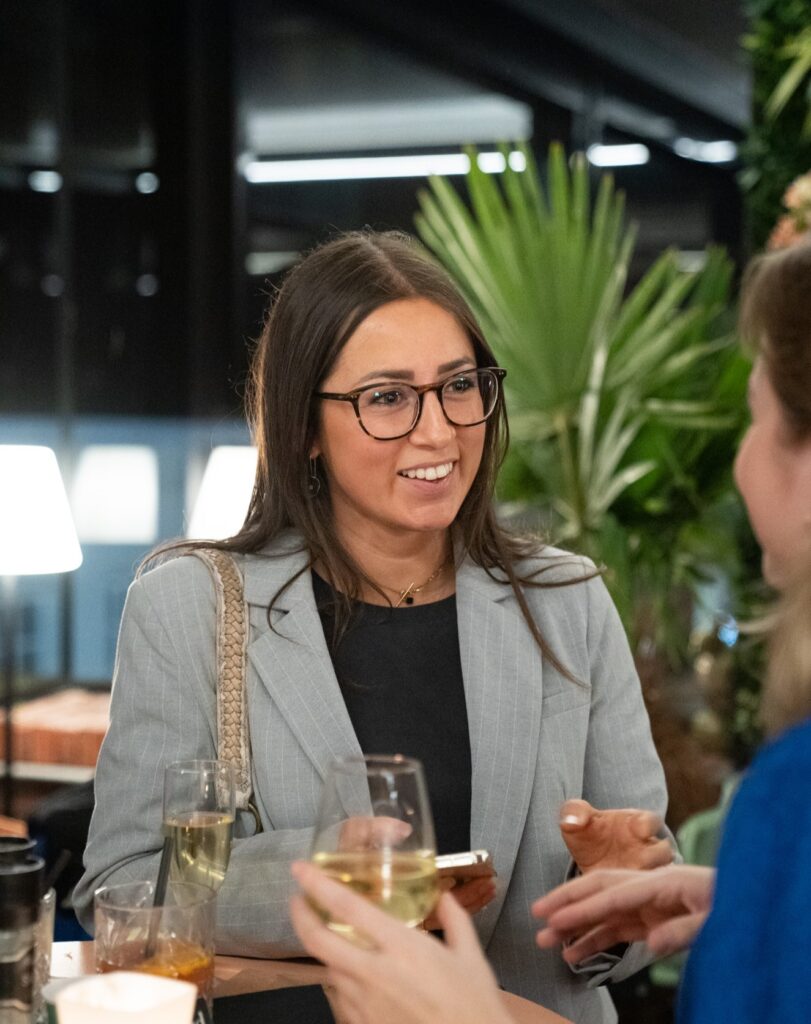Esther is a Certified Orthomolecular Nutritionist and Doula, specialised in preconception and prenatal health – an expertise she’s developed through her years of studying nutrition and learning from renowned specialists in fertility.
By combining these teachings and creating a unique plan for each client, Esther is able to optimise her clients’ health so they can give their future child the healthiest start in life.
Her approach is centred around the importance of animal based eating, which she believes is essential for a healthy pregnancy and development of the child.
Esther is based in Belgium, but works fully remote. After seven years in private practice, her results-driven approach has allowed Esther to help many women on their fertility journeys.
Q&A:
How can your specialist area support those considering, or already on a fertility journey?
My approach is centred around the importance of animal based eating for a healthy pregnancy and development of the child. I specialise in preconception health, an expertise I’ve developed through seven years of studying nutrition and learning from renowned specialists in fertility.
Most of my clients come to me in the preconception phase, and are planning on having kids in the near future. I find out what their areas of improvement are, and show them how to optimise their health so they can give their future child the healthiest start in life.
Among my clients are also those who’ve experienced one or multiple miscarriages, are having difficulties conceiving, or are considering ART. I help pinpoint “unknown” causes of infertility or recurrent miscarriages, and create a unique plan for both partners.
2. What conversation do you feel we are not having as women and should be having when it comes to fertility and female health?
We’ve seen an increased focus on educating women about the negative health effects of hormonal contraception. There’s more and more information out there to help women balance their hormones after quitting birth control. That’s already a major leap forward, and balancing hormones will definitely help women get pregnant more easily. However, getting pregnant doesn’t equal being able to sustain that pregnancy to term. I believe a lot of women lack the knowledge on what it takes to sustain a healthy pregnancy. Many couples still miss important clues about their declining fertility for many years before conception. We need to do better when it comes to educating couples on why and how to optimise their overall health preconception.
3. Do you have a personal mantra or quote that you live by / inspires you?
Prep for pregnancy like you would for a wedding. Investing in your health preconception is the most precious gift you can give your future child.
A well-nourished mother is less likely to suffer from ailments during pregnancy, has a smoother recovery, and is more likely to have a healthy baby with strong genes and a rich microbiome.
These babies have stronger immune systems, are overall happier, more intelligent, and less likely to have attention deficit disorders, digestive issues, allergies, eczema, and so on.
4. How do your clients integrate your practices alongside conventional medical treatments? How do the two co-exist?
Among my clients are also those who’ve already decided to go for ART, but are wanting to optimise their nutrition and supplementation beforehand. This is a perfect example of how traditional and functional medicine can co-exist and amplify one another. Remember, ART can help you get pregnant, but won’t necessarily help you sustain the pregnancy to term.
ART is a wonder of modern medicine, and we’re all grateful for it. It has helped so many couples whose chances of having biological children were slim. However, many couples get sent to fertility (ART) clinics as the first option when unable to conceive. This is unfortunate, as in many cases ART may not have been necessary. ART is often used prematurely, and the numbers confirm this. Dr. David, a renowned endocrinologist based in NYC, estimated that nearly 50% of IVF treatments are unnecessary.
Working on underlying imbalances first, mainly with nutrition, lifestyle changes, and personalised supplement regimes, may eliminate the need for ART. For those who do require ART, I’d still recommend working with an alternative/functional medicine practitioner/consultant first. 70% of IVF cycles fail, and working on the root cause before conception, can reduce that number. Plenty of studies show the effects nutrients have on successful egg retrieval and implantation, and a reduction in miscarriage rates.
All of the above sums up why I stand behind SheWell’s mission to bridge medical and holistic approaches to fertility. What I’d love to see more of in the future, are clinics combining expertise in both worlds.
5. If you were speaking to your younger self what advice would you give her?
We should view all the years leading up to pregnancy as the preconception period, not just the weeks/year before conception. Meaning, we should be more diligent in educating ourselves regarding food and environmental toxins, the importance of nourishing our bodies, minimising stress factors that we have control over, etc. Being more conscious about our food choices and the toxins around us can prevent the future emotional pain of infertility struggles, and the stress of trying to figure it all out when the fertility clock is ticking at 30+ y.o. (another misconception on which I’ll write a blog post at some point).
www.estherklaps.com
@estherklaps

